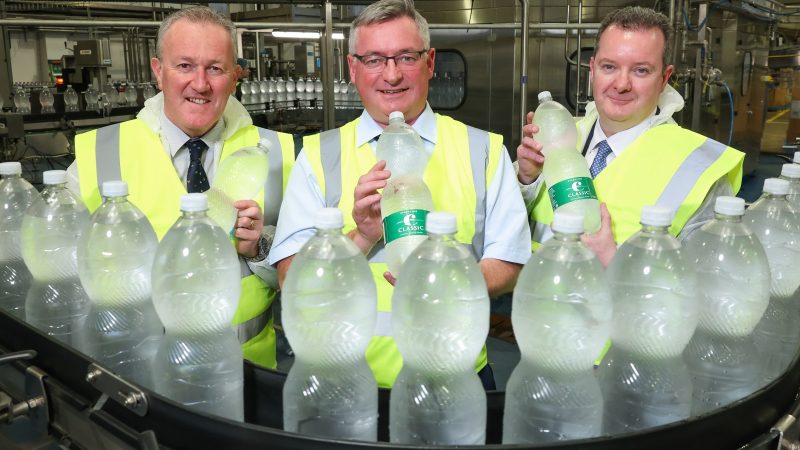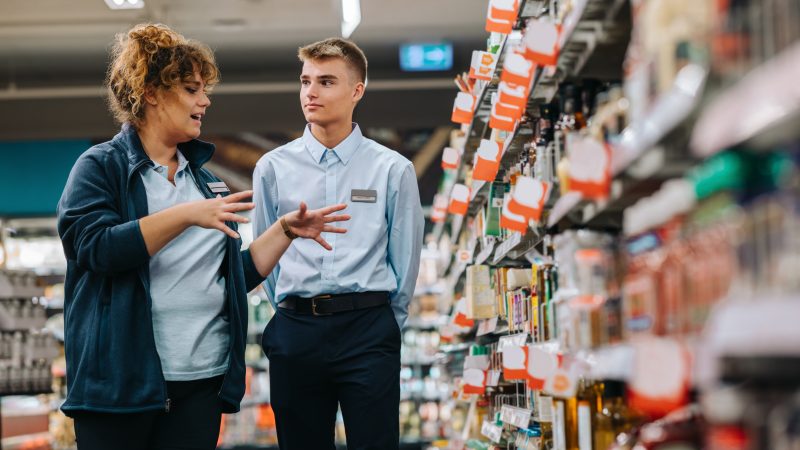M&S calls for end to all NI border checks

Supermarket giant M&S has called for the UK and EU to approve a technology-based solution to end all checks and certifications on supermarket goods moving from Great Britain into Northern Ireland.
“This would negate the need for regular checks because [the EU] could just look at our systems, audit selected loads, and see for themselves when their product left the GB distribution centre and when it arrived in our stores in Northern Ireland,” said Alec Brown, M&S head of public and regional affairs.
“Over time through their audits, they could see that the goods were only staying in NI. Hopefully that would give them the confidence that goods weren’t going into a single market and remove the need for certificates and checks on the border.”
M&S believes that with similar technology and common sense, it would be possible to make any border frictionless with no detriment to customs controls or food safety.
Mr Machin said: “This could be achieved by a Facilitated Movement Scheme which would be based on having a framework where only approved and accredited firms could move from ‘every product checked and 100% accuracy’ to a risk-based approach underpinned by statutory enforcement, an audit scheme with requests for certification and physical checks based on risk and specific intelligence, and penalties for failure.”
In addition to the NI proposals, the M&S COO also set out a list of other measures the UK government should adopt in order to help the food sector thrive in the long run.
These included more flexible visa protocols for European HGV drivers and farm workers, the creation of a Food and Agritech Research Council to boost innovation in food production, and repurposing the Apprenticeship Levy programme to also focus on “middle skills” such as HGV driving and production line maintenance.
Machin added the government needed to ramp up its support of the food industry if it wanted to achieve its “higher wage, higher skill economy” goals, and that the transition to a high productivity model “cannot simply be turned on like a light switch”.
His letter to the prime minister was co-signed by 14 other industry heavy hitters, including Boparan, Cranswick, Müller UK & Ireland, Greencore and Bakkavor.
“Over the past two years, the food industry has worked around the clock to feed the nation whilst managing the ‘once in a century’ challenge arising from Covid and Brexit,” it read.
“As the nation’s largest private sector employer, it is a testament to the hard work of our fantastic colleagues that we have been able to navigate these challenges. Throughout this period, the government has been a valued partner.
“But as we look ahead to 2022 and beyond, we need to continue that partnership to build a sustainable, resilient food sector for the long term.







